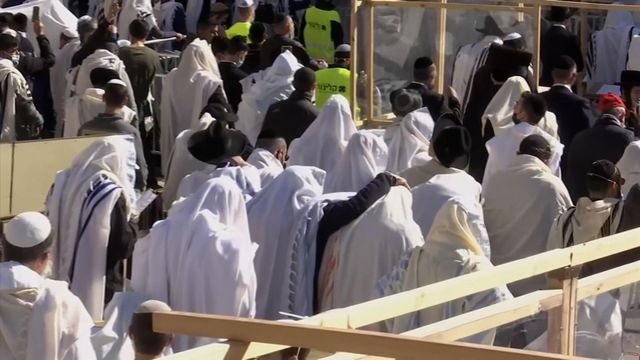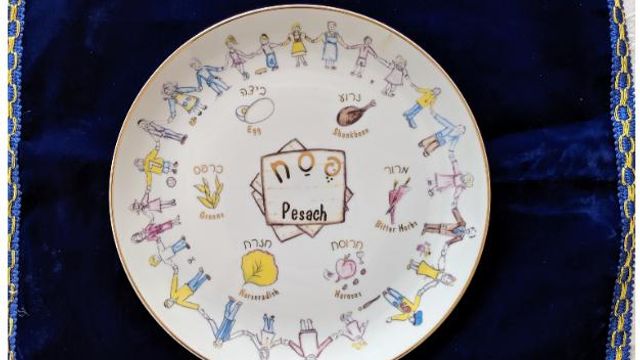As Vaccine Rollout Gathers Pace, Israelis Celebrate Passover Together
This time last year, Esti Shushan’s Passover was ruined. The sudden enforcement of the coronavirus lockdown in Israel forced Shushan to mark the Jewish festival — usually a joyous time of large family gatherings — with just her four children and husband.
But this weekend, Shushan, an entrepreneur and women’s rights activist, was able to return to something approaching normality. Israel’s vaccine program has caused infection rates to plummet, leading to a loosening of restrictions. Shushan gathered Saturday night with 40 relatives.
“It was a feeling of release,” she said. “It made us feel free. It allowed us to breathe — to experience the springtime around us.”
Across Israel, life is opening up. More than half of the Israeli population has received both doses of the Pfizer-BioNTech vaccine, the highest rate in the world.
On Saturday evening, that allowed large groups to celebrate Passover, which marks the escape of Israelites from slavery in Egypt. Then Sunday morning, Christian worshippers were permitted to gather in large numbers to mark Palm Sunday — including at the Church of the Holy Sepulchre, which according to tradition was built on the site in Jerusalem where Jesus Christ was both crucified and buried.
For many Israelis, the emergence from anti-virus restrictions gave added symbolism to a ritual, known in Judaism as Seder, that centers on freedom.
“For Jews, Seder is celebrating liberation,” said Harry D. Wall, an activist and documentary filmmaker who celebrated the evening with 11 friends in Jerusalem — 10 more than last year when he spent the holiday alone.
“And that made the return to in-person gathering, after a year of on-off lockdowns, restrictions, isolation from friends and family to be even more meaningful this year,” Wall added. “It felt like a real deliverance.”
The atmosphere at the Palm Sunday service at the Church of the Holy Sepulchre — where worshippers commemorated Christ’s entry into Jerusalem, a week before his crucifixion — was still subdued compared to the pre-pandemic era. Most places of worship can still admit only up to 50% of their capacity. But it was a happy improvement from last year, said Pierbattista Pizzaballa, the most senior Catholic official in the city.
“Last year was a terrible Easter, without people, closed doors,” he said in an interview with Reuters after the service. “This year is much better — the doors are open. We don’t have a lot of people, but we feel more hopeful that things will become better.”
A few miles to the south in Bethlehem, in the occupied West Bank, Christian Palestinians were also able to gather at the Church of the Nativity, which stands on a site where tradition holds that Christ was born. But the mood in Bethlehem is generally more somber: As in much of the West Bank, the city now shuts down at 7 p.m. to help temper the spread of the virus.
The infection rate is surging in the parts of the occupied territories administered by the Palestinian Authority. The authority has been able to procure only a small fraction of the vaccines it needs to protect the Palestinian population. And Israel has vaccinated predominantly those Palestinians who work in Israel itself or in Jewish settlements in the West Bank, stirring a debate about its responsibility as an occupying power.
Israel argues that Palestinian officials assumed responsibility for vaccinations after the signing of the Oslo accords in the 1990s. But Palestinian advocates argue it is Israel’s duty to help the Palestinians, citing the Fourth Geneva Convention, an international law that governs occupations.











